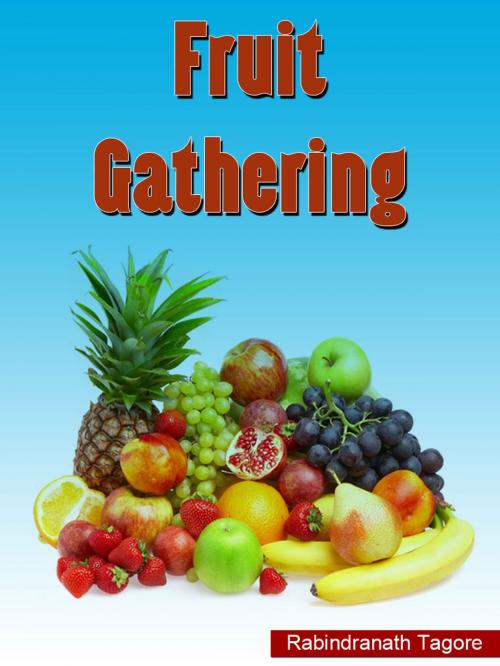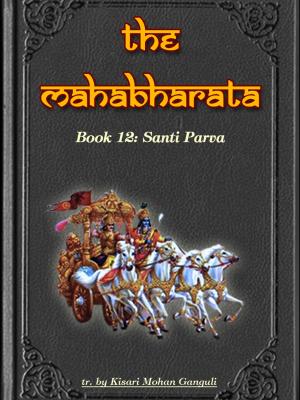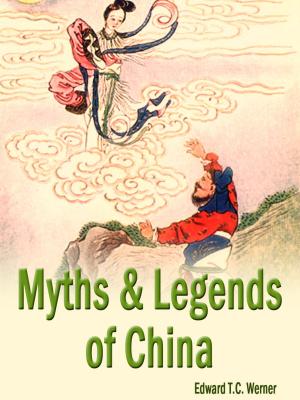| Author: | Rabindranath Tagore | ISBN: | 9781623941338 |
| Publisher: | AppsPublisher | Publication: | October 9, 2012 |
| Imprint: | Language: | English |
| Author: | Rabindranath Tagore |
| ISBN: | 9781623941338 |
| Publisher: | AppsPublisher |
| Publication: | October 9, 2012 |
| Imprint: | |
| Language: | English |
Fruit Gathering
by Rabindranath Tagore
"Rabindranath Tagore (7 May 1861 - 7 August 1941), also known by the sobriquet Gurudev, was a Bengali poet, Brahmo Samaj philosopher, visual artist, playwright, novelist, and composer whose works reshaped Bengali literature and music in the late 19th and early 20th centuries. He became Asia's first Nobel laureate when he won the 1913 Nobel Prize in Literature. A Pirali Bengali Brahmin from Calcutta, Tagore first wrote poems at the age of eight. At the age of sixteen, he published his first substantial poetry under the pseudonym Bhanushingho ("Sun Lion") and wrote his first short stories and dramas in 1877. His home schooling, life in Shilaidaha, and travels made Tagore a nonconformist and pragmatist. Tagore strongly protested against the British Raj and gave his support to the Indian Independence Movement and Mahatma Gandhi. Tagore's life was tragic-he lost virtually his entire family and was devastated to witness Bengal's decline-but his life's work endured, in the form of his poetry and the institution he founded, Visva-Bharati University. Tagore wrote novels, short stories, songs, dance-dramas, and essays on political and personal topics. Gitanjali (Song Offerings), Gora (Fair-Faced), and Ghare-Baire (The Home and the World) are among his best-known works. His verse, short stories, and novels, which often exhibited rhythmic lyricism, colloquial language, meditative naturalism, and philosophical contemplation, received worldwide acclaim. Tagore was also a cultural reformer and polymath who modernised Bengali art by rejecting strictures binding it to classical Indian forms. Two songs from his rabindrasangeet canon are now the national anthems of Bangladesh and India: the Amar Shonar Bangla and the Jana Gana Mana."
Fruit Gathering
by Rabindranath Tagore
"Rabindranath Tagore (7 May 1861 - 7 August 1941), also known by the sobriquet Gurudev, was a Bengali poet, Brahmo Samaj philosopher, visual artist, playwright, novelist, and composer whose works reshaped Bengali literature and music in the late 19th and early 20th centuries. He became Asia's first Nobel laureate when he won the 1913 Nobel Prize in Literature. A Pirali Bengali Brahmin from Calcutta, Tagore first wrote poems at the age of eight. At the age of sixteen, he published his first substantial poetry under the pseudonym Bhanushingho ("Sun Lion") and wrote his first short stories and dramas in 1877. His home schooling, life in Shilaidaha, and travels made Tagore a nonconformist and pragmatist. Tagore strongly protested against the British Raj and gave his support to the Indian Independence Movement and Mahatma Gandhi. Tagore's life was tragic-he lost virtually his entire family and was devastated to witness Bengal's decline-but his life's work endured, in the form of his poetry and the institution he founded, Visva-Bharati University. Tagore wrote novels, short stories, songs, dance-dramas, and essays on political and personal topics. Gitanjali (Song Offerings), Gora (Fair-Faced), and Ghare-Baire (The Home and the World) are among his best-known works. His verse, short stories, and novels, which often exhibited rhythmic lyricism, colloquial language, meditative naturalism, and philosophical contemplation, received worldwide acclaim. Tagore was also a cultural reformer and polymath who modernised Bengali art by rejecting strictures binding it to classical Indian forms. Two songs from his rabindrasangeet canon are now the national anthems of Bangladesh and India: the Amar Shonar Bangla and the Jana Gana Mana."















